The Diasporic Library, Brussels
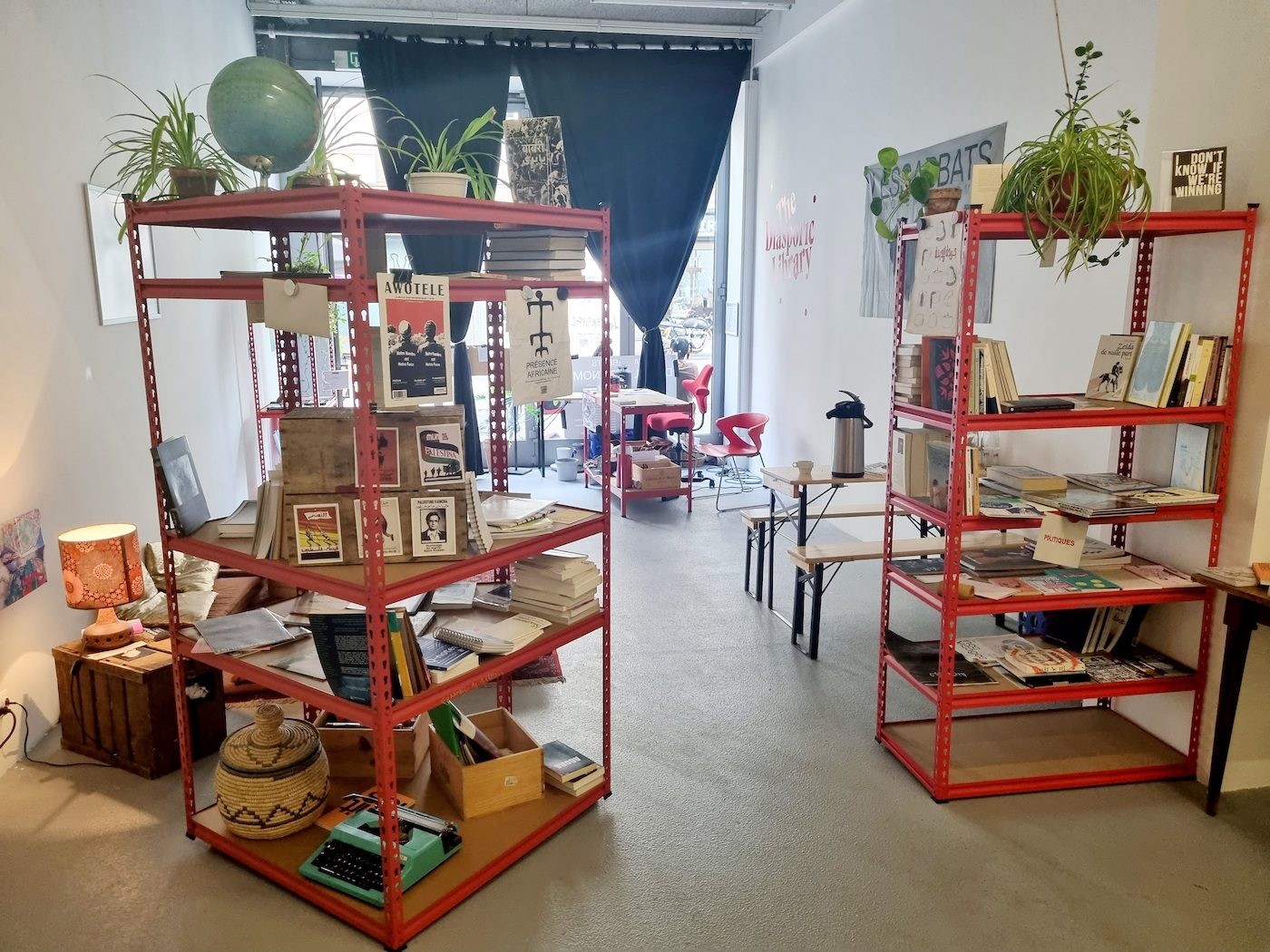
Take a look into libraries and book collections holding some of the rarer and often forgotten publications, which are nonetheless essential to the discourse on both sides of the spectrum. Featured this time: The Diasporic Library in Brussels.
The Beursschouwburg, a multidisciplinary art centre in the heart of Brussels, hosted the pilot edition of the Diasporic Library, a participatory public library intending to address two questions: What do we do with all the books and productions gathered from all over the world? And how does the library of our dreams look like? For a month, the exhibition space has been transformed into an intergenerational diasporic gathering place to explore geographical shifts, social positions, and cultural and gender identities across continents.
Behind the initiative, Isabelle N’Diaye (independent curator and researcher), Sofia Dati (programmer at the Beursschouwburg), Joachim Ben Yakoub (researcher and member of The Kitchen) and many art collectives and independent publishers responded eagerly to the invitation to share valuable collections. A common ambition: the desire to offer resources from personal libraries and to stimulate reflections on the art world’s normativity, the recurrence of systemic oppressions and the trajectories of decolonial struggles, while bringing in new regenerative and creative universes.
Here, what is important lies primarily in the relational and emotional value of the publications, in what people share around them. Quantity does not make one complete, but the ability to create connections. For example, the book Festac 77 about the Black Arts Festival, which I love, but if I’m the only one reading it, what’s the point? (Isabelle N’Diaye)
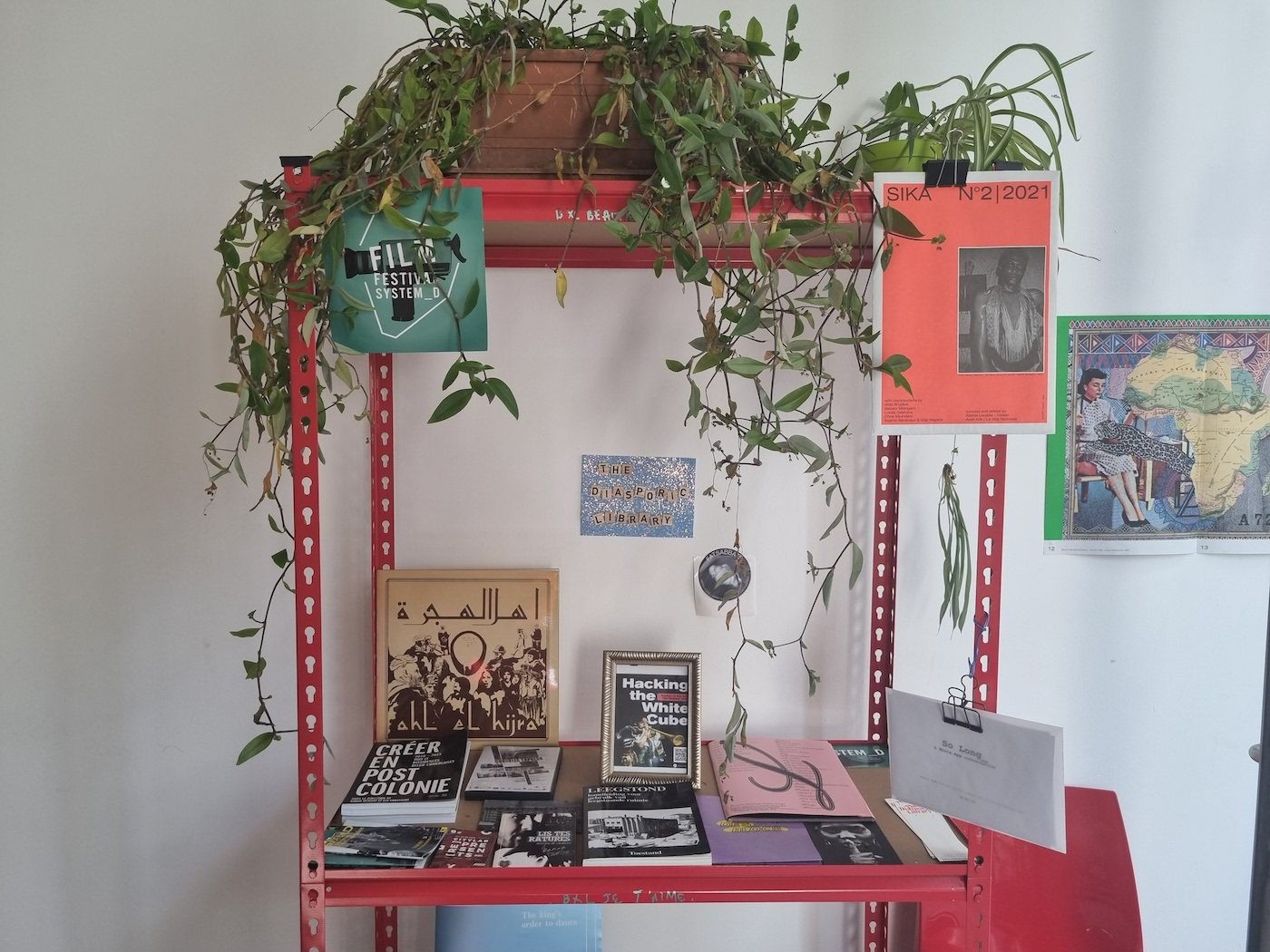
<figcaption> Diasporic Library. Photo: Serine Mekoun
A place for discussion to redefine the very concept of diaspora and to push back the limits of the binary tracings and classifications of the discursive constructions to which it refers, giving way to the very diverse trajectories associated with the “Global South” (with contributors from Brazil, South Africa, Venezuela, Palestine...) and to the so-called “indigenous” communities (e.g., the Sámi in Finland).
Its inventory in progress already comprises about 120 publications and brings together a polyphony of languages mirroring the linguistic diversity of diasporic cultures, varying from the poetic to the subversive with art students’ works, fiction scripts that have been shared in exclusivity, comic books, photography magazines, newspaper archives, or political posters. A selection of works based on affective value, on reading wishes and diverse ways of approaching a theme that does not respond to the exhaustive requirements associated with an academic repertoire.
A diasporic library will never be complete because the fragment is part of us. The concept of diaspora is connected to the idea of scattered histories, of incompleteness. Thus, we need places where we can refocus. We are often told that we are not enough, that we are lacking. The library is the reverse example, it shows us how we have an overflowing artistic heritage to preserve, and that dispersion is not a synonym for poverty. (Isabelle N’Diaye)
Choosing to read books on site in its reading room and at its conversation table allows another knowledge to circulate freely.
Its future version, as unpredictable as it is expected to be, will keep on materializing through itinerancy and thanks to the strengthening of already existing initiatives internationally, since it essentially aims to bring together a network of individuals willing to enrich it with their own trajectories within an ever-changing World. The selected books are available from the respective collectives until the next edition.
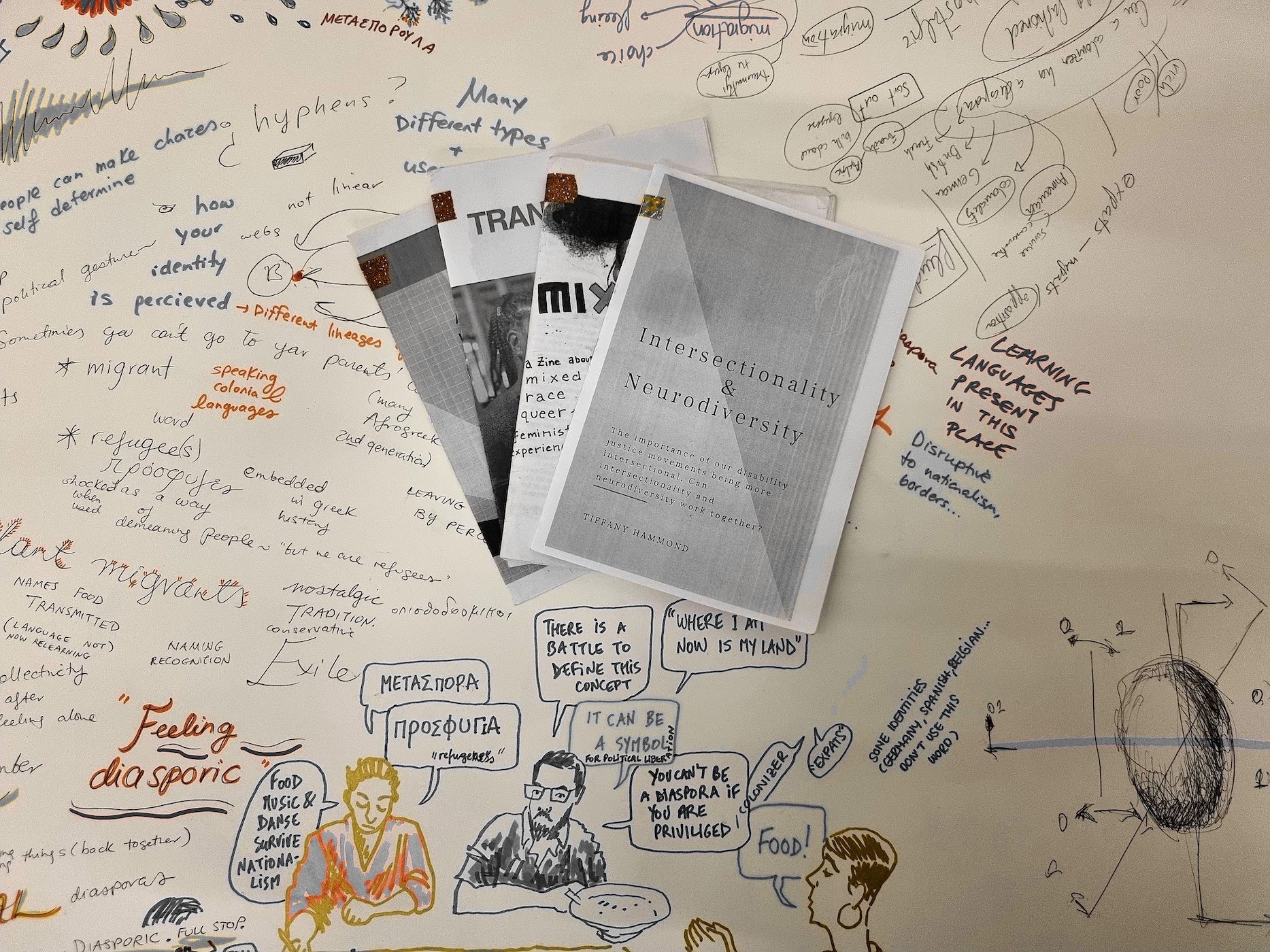
<figcaption> Zinotheque Fatsabbats. Photo: Serine Mekoun
THE SELECTION
1. The zine library of the queer afro-feminist collective Fatsabbats
Fatsabbats, a collective for POC women, the QUEER community, and its allies, offers a unique and sensitive insight into the world of fanzines and embodies the collective’s intersectionality through the range of experiences it brings together. It offers a dive into the intimate life paths of the collective’s members and focuses on queer authors, as well as on themes rarely found in public libraries, such as chosen families, neuroatypicalism, Black veganism, mixed-race and Creole bodies, Afro-Trans identities, and reflexive tools for conversation and sharing experiences. In collaboration with feminist and queer self-managed partner libraries, it also includes releases accessible to a more disadvantaged audience, with some fanzines available for free online or for a small contribution.
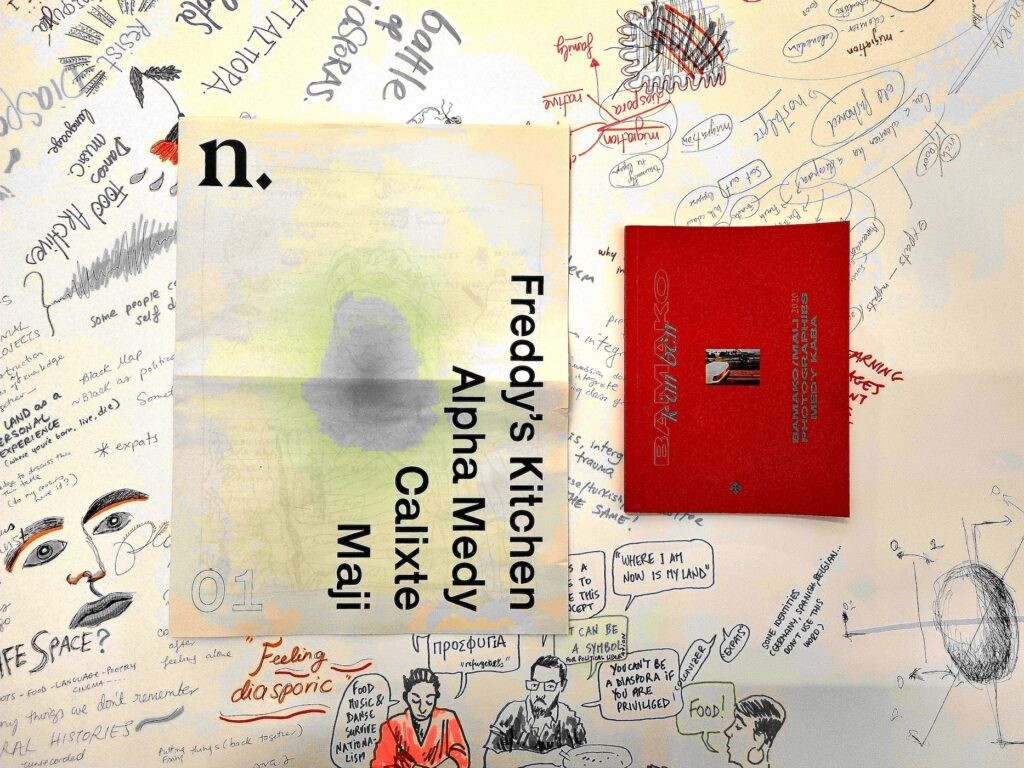
<figcaption> Notr.edit. Photo: Serine Mekoun
2. notre.dit’s non-Instagram productions
A young independent publishing house addressing the limits of sharing artistic productions in the age of Instagram by publishing on paper the traces of daily connections and encounters beyond social networks. notre.dit places a special emphasis on collective creative processes and overthrowing the art world’s elitist and classist barriers, leaving space for reappropriation through colouring, cutting and any form that allows one’s vision of the world to be included. The first two issues of the collective consisted of a colouring journal, resulting from the meeting between the chef Freddy’s Kitchen, who shared his bao with hibiscus and plantains’ recipe, and the photographer Alpha Medy, whose photos also feature in a magazine showing a first reconnection with the African continent through images taken at a wedding in Bamako.
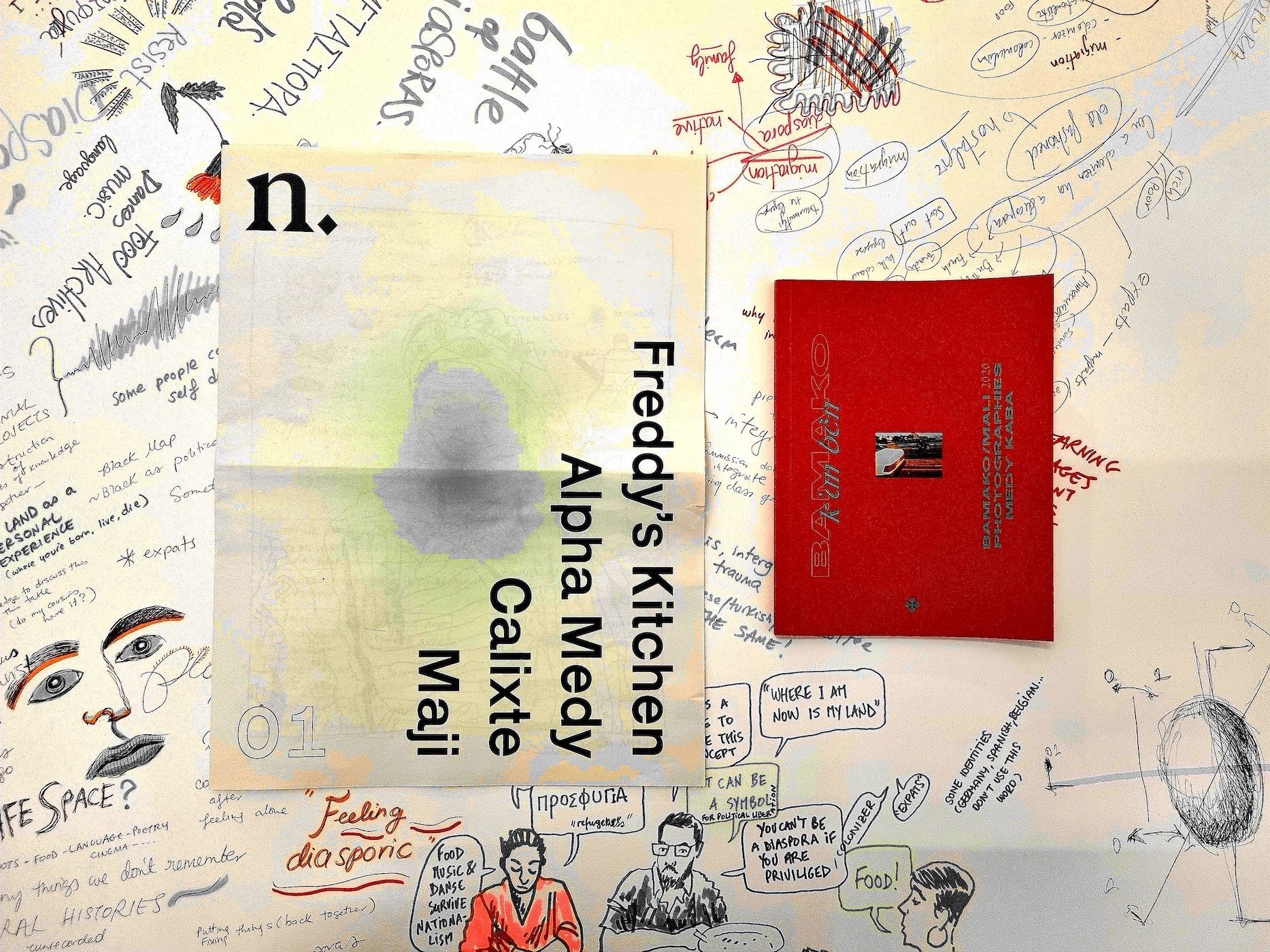
<figcaption> BD Lab 619. Photo: Serine Mekoun
3. Grange Point’s comic and graphic arts collection
The comic book collection for adults from the Tunisian independent writers and illustrators’ collective Lab 619 tackles, through ten issues, questions relating to migration, identity, the future, and the Tunisian political climate. Published in 2016, these ten limited edition issues are hosted by the Grange Point platform, which promotes Arab culture in Brussels, the Arab world and beyond (a multilingual space stretching from Morocco to Iraq and its diasporas around the world). They have collected comics and graphic arts from Tunisia that are still rare and difficult to access. The publications are bilingual French/Arabic with the option of reverse reading.
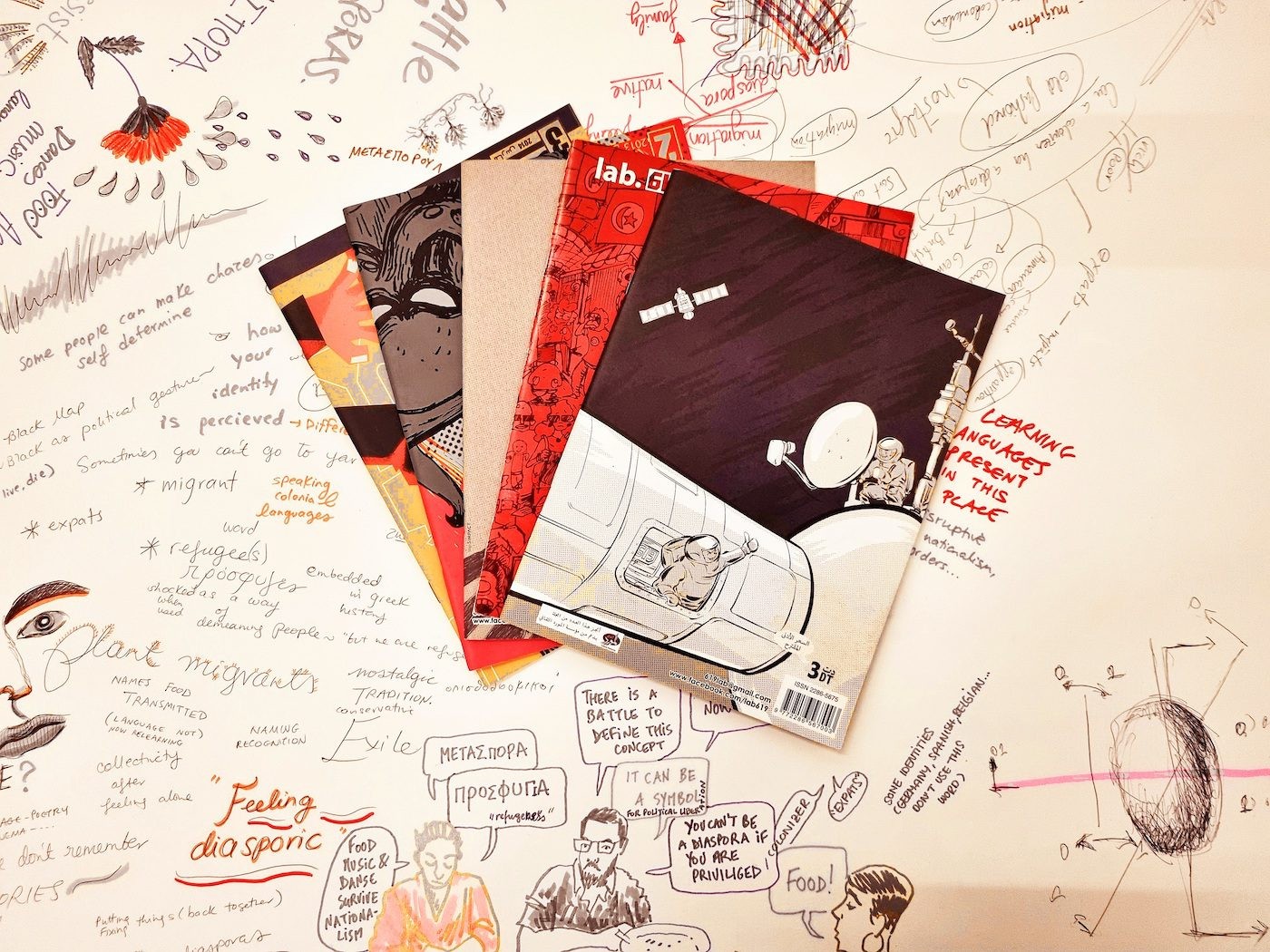
<figcaption> Vinyl Ahl El hijra. Photo: Serine Mekoun
4. The Kitchen’s musical and underground archive
A rare copy of Ahl El Hijra's musical productions, a music band of Moroccan immigrants living in Brussels from the mid-1970s to the early 1980s. Through percussion and a focus on vernacular languages, the band worked with North African communities to highlight the living conditions of North African migrant communities in Belgium. The LP was found by one of the members of The Kitchen, a third artistic venue for underground research and gatherings around postcolonial identities. Amongst other things, they are interested in different forms of documentation about migrant communities' social realities from the African continent through Belgian history and their cultural productions.
Serine Ahefa Mekoun is a Belgian literary journalist of Beninese-Togolese descent based in Brussels. Born at the cusp of Generations Y and Z, she is interested in spaces of reconnection in the constant back and forth between popular and high culture, between Europe and Africa, and in all the spaces where different futures can germinate.
Translated by Gauthier Lesturgie.
Feature
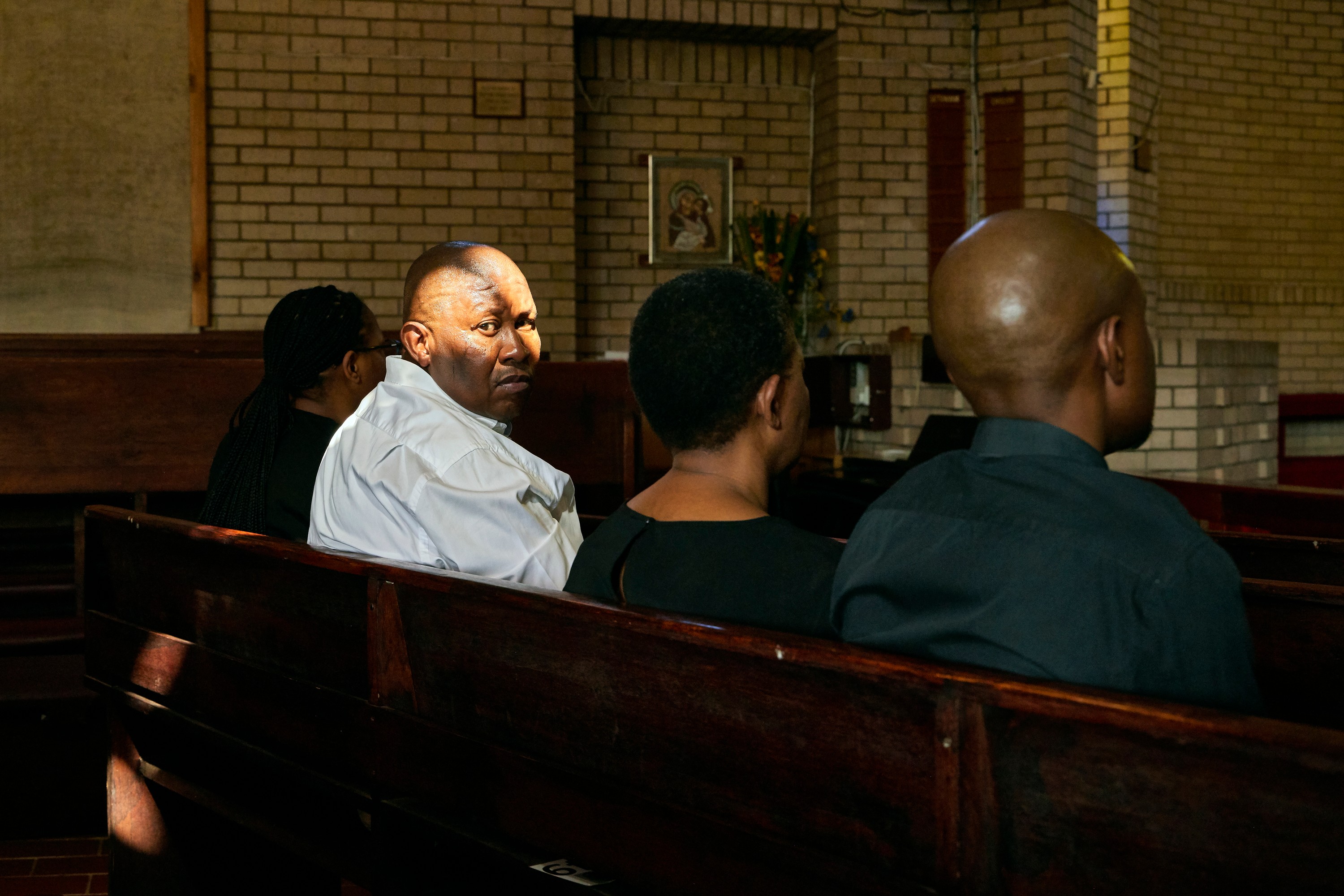
We're Still Here: Thero Makepe’s Visual Jazz
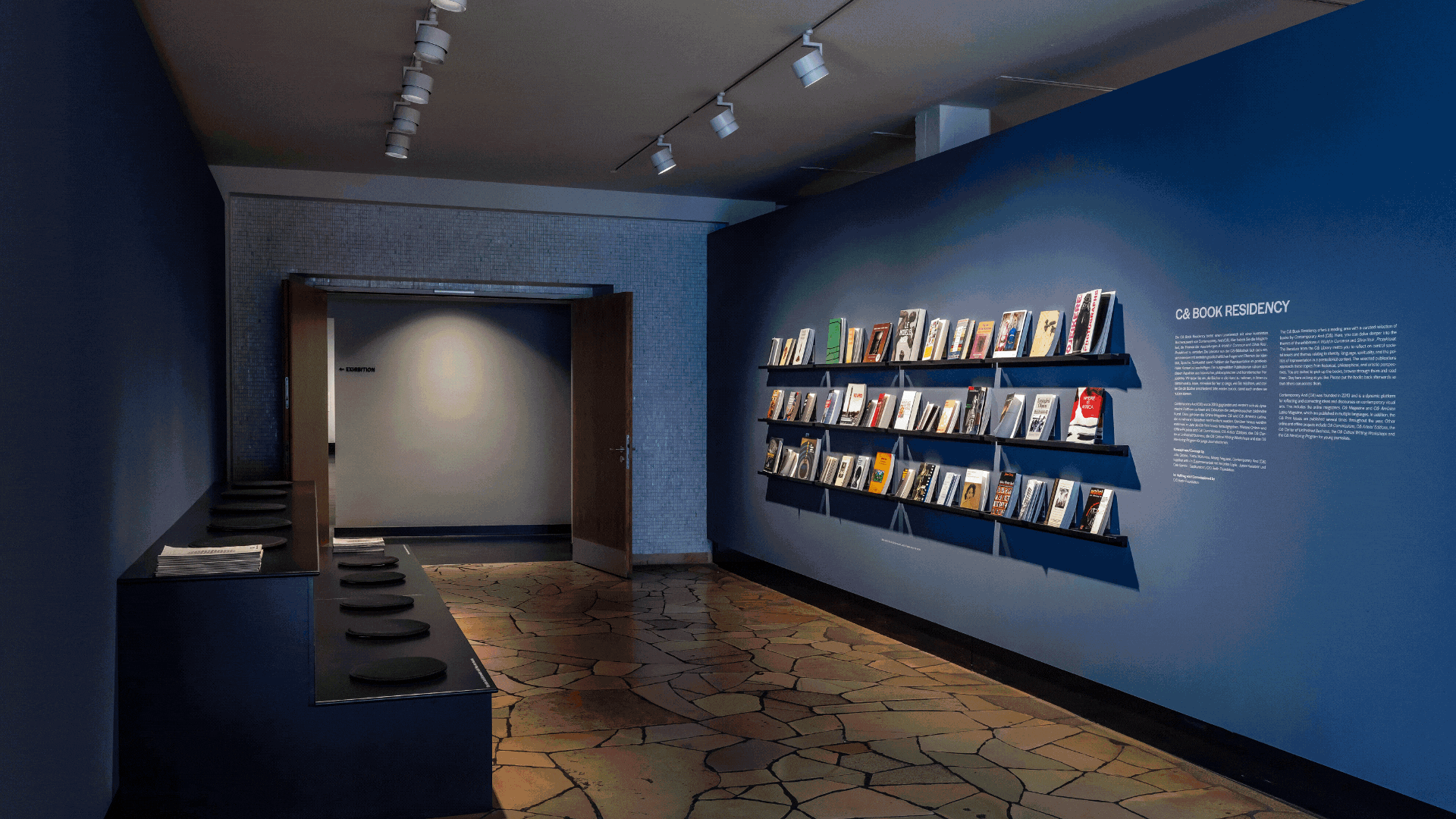
C& Highlights of 2025
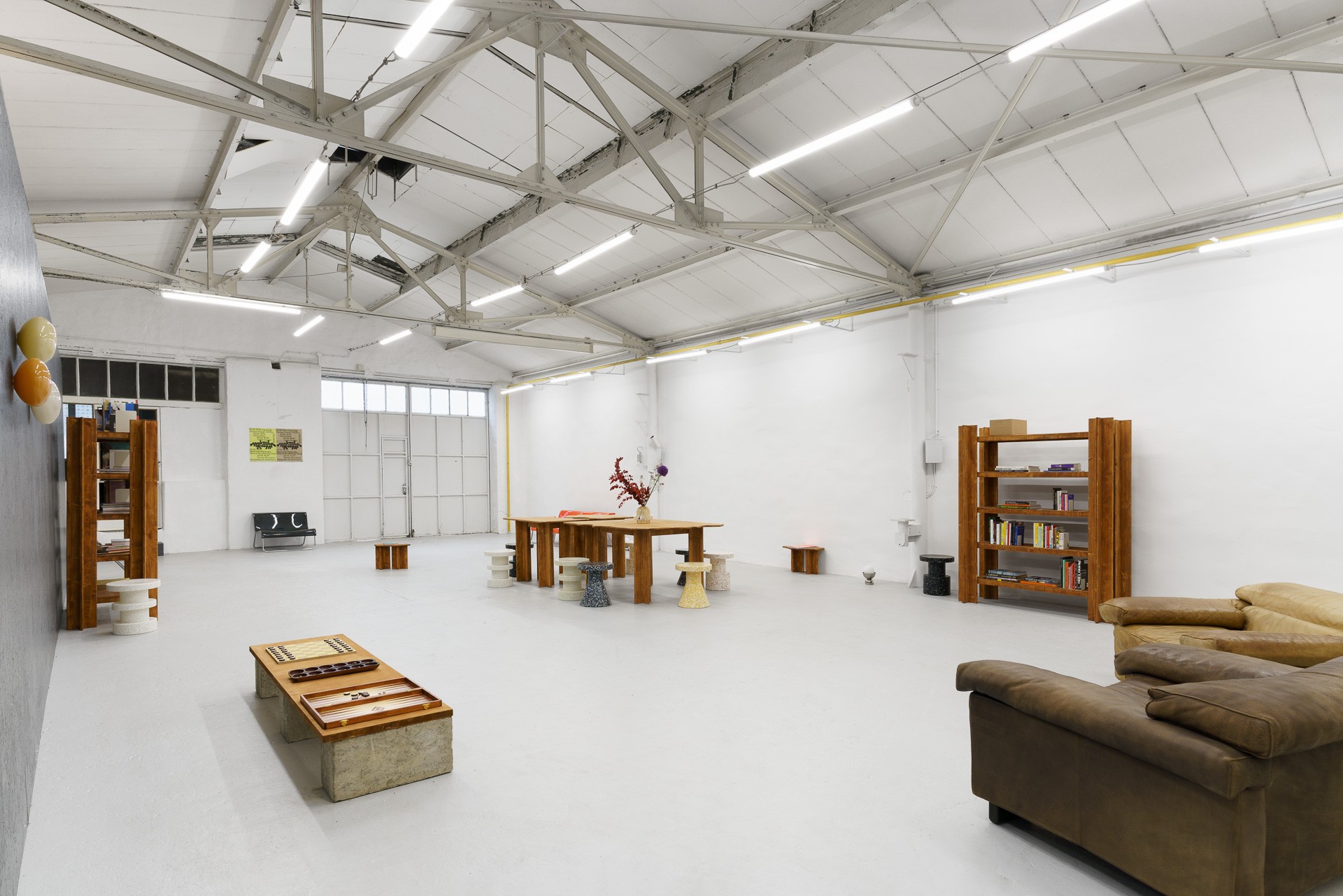
Maktaba Room: Annotations on Art, Design, and Diasporic Knowledge
Feature

We're Still Here: Thero Makepe’s Visual Jazz

C& Highlights of 2025
